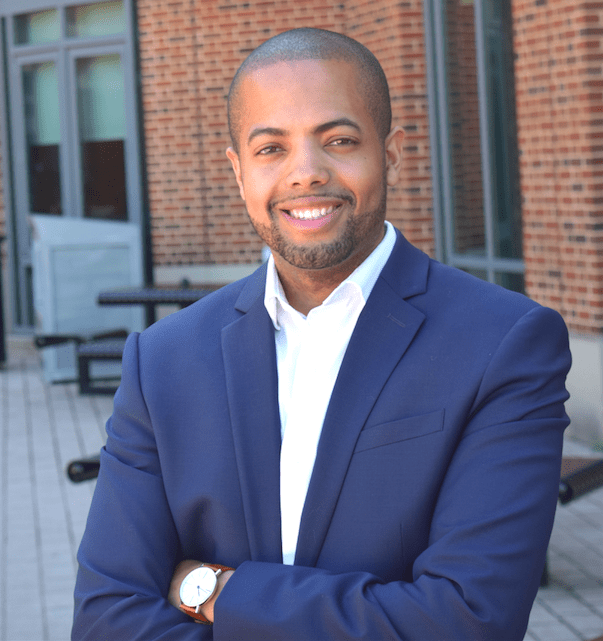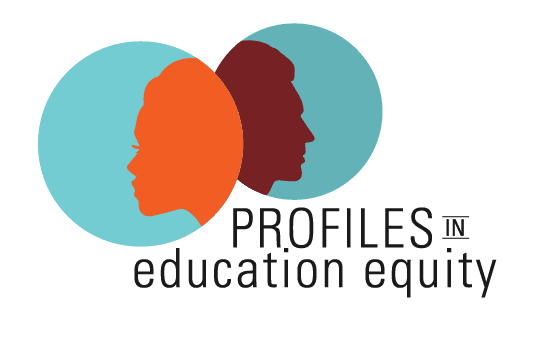Profiles in Education Equity: Kyle Strickland, the Kirwan Institute
Kyle Strickland is the senior legal analyst at the Kirwan Institute for the Study of Race & Ethnicity. His work focuses on local and national civil rights issues, criminal justice…

Kyle Strickland is the senior legal analyst at the Kirwan Institute for the Study of Race & Ethnicity. His work focuses on local and national civil rights issues, criminal justice reform, fair housing policy, and equitable access to education. In addition, Kyle leads the coordination of My Brother’s Keeper Ohio, a statewide network that helps provide educational and community opportunities for boys and young men of color.
work focuses on local and national civil rights issues, criminal justice reform, fair housing policy, and equitable access to education. In addition, Kyle leads the coordination of My Brother’s Keeper Ohio, a statewide network that helps provide educational and community opportunities for boys and young men of color.
At the Kirwan Institute, we collaborate with community partners by analyzing policies, community structures, and interpersonal bias to understand its impact on vulnerable populations, with an emphasis on communities of color. We also understand that we can’t solve the problems facing our education system and society at large without recognizing the very real legacy of our country’s racial history of discrimination and segregation, and how it continues to perpetuate inequities today.
Much of my work in the education equity landscape is through my role as the director of MBK Ohio, a statewide network aligned with President Obama’s My Brother’s Keeper Initiative to expand opportunities for youth of color. Since launching in October 2018, we’ve been able to support community leaders throughout Ohio as they plan programs, design interventions, and track progress to improve outcomes for marginalized youth from pre-K through college.
One of our biggest successes so far has been the launch of MBK Ohio. There are a lot of great organizations doing really amazing work for youth of color throughout the state, but we’ve often lacked consistent coordination and data sharing at the statewide level. With the launch of MBK Ohio, we now have a focused coalition that helps communities collectively set goals on economic and educational equity indicators, identify and share best practices, and better streamline resources.
This would not have been possible without teamwork and collaboration. Over the past year, we’ve worked closely with senior leadership at The Ohio State University, U.S. Senator Sherrod Brown’s office, and community leaders across the state to put together this network — which is now made up of a coalition of more than 10 cities and regions throughout the state of Ohio.
I’m motivated by the young people of this generation. All across the world, young people are leading the calls for a more equitable and just society. From marches to end gun violence or calls to address climate change, this generation is challenging each one of us to do our part in creating a better world for all. If we want to solve the challenges of our time, we have to invest in the people and communities who are most impacted by the failures of our institutions and policies. Young people are leading the way — we should listen to them and empower them.
Our education system, like many other systems, far too often fails communities of color and those living in poverty. We talk a lot about the need for every child to have access to a high quality education regardless of zip code, but that’s simply not the way things work today. Your zip code determines your education and your life outcomes.
We know what it takes to create a society where high quality, affordable education is a reality for all. It’s about what we invest in. It’s really not a question of whether a particular policy or plan is “pragmatic” or not. It’s often a question of our values and what we prioritize as a society. Unfortunately, for too long, we haven’t prioritized high quality, affordable education for everyone. That must change.
We have a lot of exciting opportunities on the horizon. Recently, we were awarded a three-year federal grant to support the work of My Brother’s Keeper Ohio. This grant will send 10 AmeriCorps VISTA members to local MBK chapters to help build the capacity and sustainability of programs that work to advance opportunities of youth of color and other marginalized youth across the state. Thanks to this support, we will establish the MBK Ohio Youth Leadership Coalition, a statewide peer network that will connect over 500 youth to mentorship opportunities and programming that supports educational attainment and workforce development.
But success for us won’t be just about supporting programs; we must also be committed to implementing systems-level change to dismantle the institutional barriers that keep young people and their families from thriving. Until every child has the opportunity to reach his or her full potential, we still have more work to do.